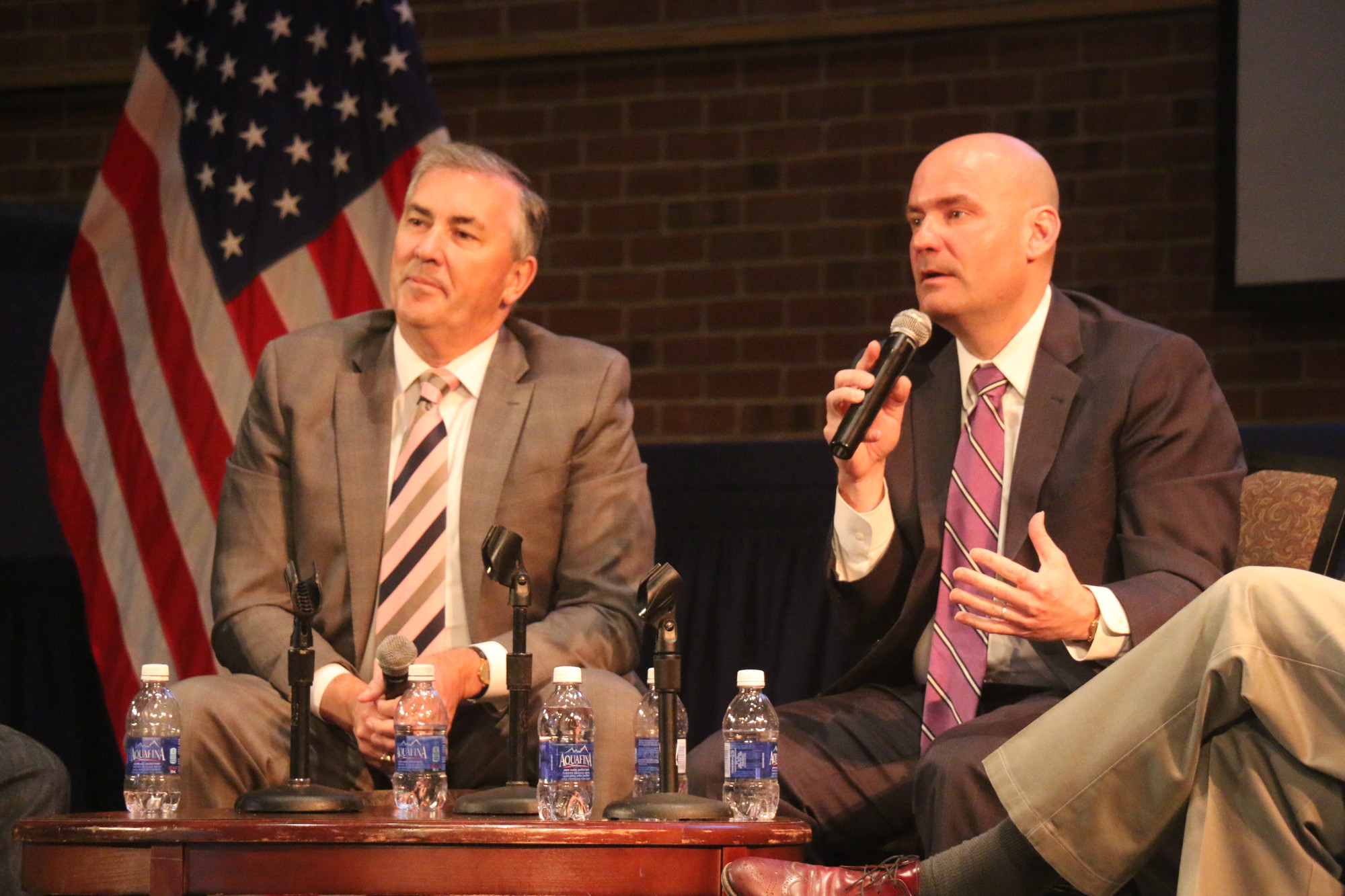High school students talk media at Press Day
More than 300 high school journalists from schools in Nassau and Suffolk counties and Queens gathered at Adelphi University on March 9 for the annual Press Day and Quill Awards.
The students listened to a panel discussion that featured Michael Balboni, a former Republican state Senator, and Christopher Hahn, a former chief deputy county executive for Nassau County, radio host, political consultant and progressive pundit. Adelphi professors Paul Thaler, Salvatore Fallica and Mark Grabowski also sat on the panel, which focused on modern media coverage of politics, especially of the presidential campaign.
“I think you’re going to be smarter if you don’t rely on TV,” Hahn said. “I think that’s the key … It is entertainment. Even TV news, with very little exception, is an entertainment medium. You really do have to accept it as that and have that be something you watch in addition to where you get the rest of your information … If you rely solely on television to inform you, you will be misled.”
Hahn added that TV news production is tailored to audience demand, so if viewers object to how news is presented, they should stop viewing it. “If we stop watching it, they’ll stop doing it,” he said.
Balboni spoke about the value of firsthand experiences over seeking an understanding of the world through news consumption. “If you don’t want to rely as much on the media to tell you what’s going on in the world — and I really mean this — then get out in the world,” he said. “Travel. Take a chance. Instead of hanging out on Long Island, take a train into New York City. Take a bus ride to Boston. Get on a plane and get to somewhere over the summer. Get out of your comfort zone, because you know what that’s going to do? That’s going to give you the information that the media never could.”
The panel also discussed Republican presidential candidate Donald Trump’s campaign and media coverage of it. Thaler, the panel’s moderator, said that the controversial candidate “tapped into a conversation that was, to a large extent, unrecognized in the day-to-day journalism and media coverage that we were seeing.”

 50.0°,
Overcast
50.0°,
Overcast 




